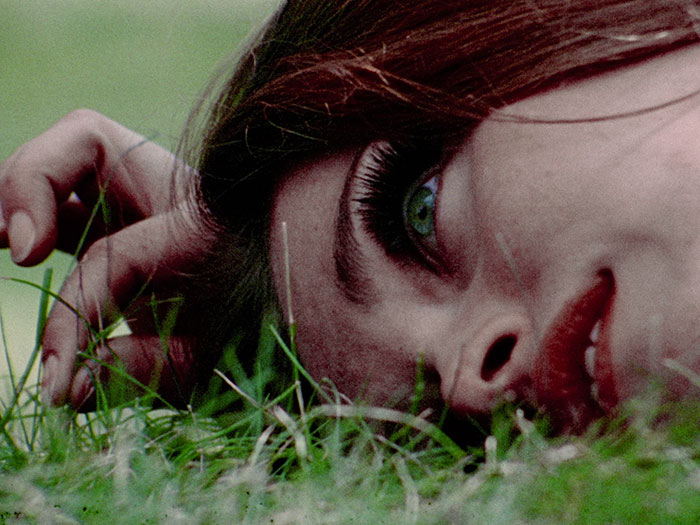
There’s Always Vanilla/The Affair (1972)
*½/**** Image B- Sound C+ Extras A-
starring Ray Laine, Judith Streiner (née Ridley), Johanna Lawrence, Richard Ricci
written by R. J. Ricci
directed by George A. Romero
Season of the Witch/George A. Romero’s Season of the Witch/Hungry Wives/Jack’s Wife (1973)
***/**** Image A- Sound B+ Extras B+
starring Jan White, Ray Laine, Joedda McClain, Bill Thunhurst
written & directed by George A. Romero
The Crazies/Code Name: Trixie (1973)
***/**** Image A Sound B+ Extras B-
starring Lane Carroll, W.G. McMillan, Harold Wayne Jones, Lloyd Hollar
screenplay by Paul McCollough & George A. Romero
directed by George A. Romero
by Bryant Frazer George A. Romero, one of the unquestioned masters of American horror cinema, never intended to be a horror filmmaker. It’s one of the great ironies in film history. When the Pittsburgh-based writer and director ventured from industrial filmmaking (via his production company, The Latent Image) into features, he made a horror movie not out of any claimed interest in or affinity with the genre, but simply because exploitation pictures were considered the safest investments. And for years after its release, the man who made the epochal Night of the Living Dead (1968)–not just the blueprint for the modern zombie movie, but also a metaphor for U.S. misadventures in Vietnam and a disturbing allegory for inhuman behaviour among the living–was still apologizing for what he perceived as its shortcomings. “There’s so much terrible dialogue, and there are several really poor performances,” Romero said in a 1972 CINEFANTASTIQUE interview conducted by local actor Sam Nicotero, who was playing the role of a sheriff’s deputy in Romero’s then-in-production sci-fi/disaster hybrid, The Crazies. “Technically, the film is not that bad–but, Christ, our commercial work is better than that.”

